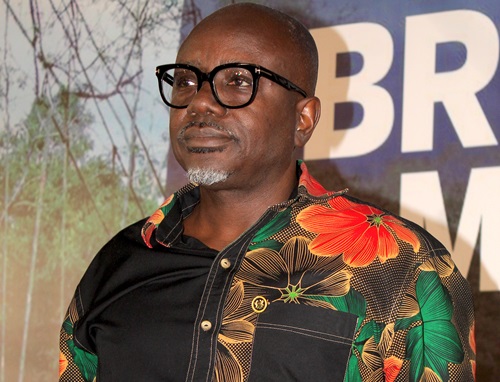
Graphic Business/Stanbic Bank Breakfast Meeting: Prioritise tourism in devt agenda: Sector fetches $3.3bn 2023 - GTA CEO to govt
The Chief Executive Officer of the Ghana Tourism Authority (GTA), Akwasi Agyeman, says there must be a deliberate action to put the tourism sector on the front burner of government policy because of its potential to be a key driver for national development.
Advertisement
He said in most instances, tourism was treated as the last item on the budget, and that there was the need to rethink its role and potential contribution to the economy.
At the Graphic Business/Stanbic Bank Breakfast Meeting at the Labadi Beach Hotel in Accra yesterday, Mr Agyeman said last year alone, tourism contributed about $3.3 billion to the economy, adding that a deliberate action to mainstream tourism in government policy could help to generate even more foreign exchange for the country.
That, he said, could be done by addressing the challenges facing the industry to propel its growth.
“Let’s mainstream our tourism for development as part of the national conversation,” he said.
This edition of Graphic Business/Stanbic Bank Breakfast Meeting, held on the theme: “Tourism the Golden Egg: A Shared Responsibility”, brought together players in the tourism industry, including hoteliers, tour guides, the industry regulator, musicians and artists, among others.
Mr Agyeman was speaking on a panel with the Managing Director of the Labadi Beach Hotel, David Eduaful, and a tax expert, Abeku Gyan Quansah.
Concerns
In spite of the potential for growth in the tourism sector, challenges such as high taxes on hotels, import duties, utility bills and labour costs were identified as impediments to the industry.
He said while the Tourism Development Fund could be used to fix some of the challenges confronting the sector, there was the need for some dedicated funds from the government to undertake high budget infrastructure projects, including fixing tourist destinations such as the Salaga Slave Market and the Kwame Nkrumah Mausoleum.
“We need funding from the government for such renovations to spur the numbers like how the Nkrumah Memorial Park is attracting more visitors after the renovation,” he said.
Low-hanging fruit
Mr Agyeman said the tourism industry was a “low-hanging fruit” that must be plucked for the development of the country.
As part of efforts to tap into the potential of the industry, Mr Agyeman said the GTA had already signed 13 memoranda of understanding with communities to develop their tourism potential, demonstrating a commitment to partnership models in tourism development.
He said Ghana had abundant natural resources that had the potential to drive tourism, including the peace in the country.
He underscored the role of peace in driving tourism and stressed that it should not be taken for granted.
He highlighted the increase in average tourist spending from $2,000 to $3,000 and the growth in visitor numbers which hit 1.1 million last year.
Mr Agyeman also mentioned Ghana's competitive advantage due to its central location and accessibility, which he said made it an attractive destination for both domestic and international tourists.
“We have a competitive advantage because God has blessed us with everything.
We are the centre of the world, so access to places is great here. Airlines fly shorter distances to the rest of the world from here,” he said.
Aside from that, he said the country’s cultural activities, including festivals and heritage sites, were identified as a key driver of tourism, highlighting the appeal of Ghana as a destination for Africans in the diaspora seeking to reconnect with their roots.
The rise of meetings, incentives, conferences and exhibitions (MICE) tourism and marketing efforts to promote Ghana as a tourist destination were also discussed at the meeting.
Mr Agyeman said while such meetings were driving tourists to the country, cruise ships were frequently docking at both the Takoradi and Tema ports, increasing the economic value of the tourism industry.
“When these tourists arrive, they go for day tours and spend money.
Emancipation Day and Panafest compel people to move around the country although they go to the castles,” he stressed.
Challenges
Mr Eduaful called for a more holistic approach to tourism development, including addressing visa issues, improving infrastructure and enhancing customer service.
“We must look at customer service because here, we feel like we are doing the customers a favour, but it’s not like that in the Western world; so when you treat them like that, it affects tourism.
“We need to pay attention to our beaches because they have the potential to generate money.
We have some of the best beaches on the planet,” he added.
Mr Eduaful emphasised the need for government to give incentives to players in the industry to spur investment and development, while highlighting the importance of mainstreaming tourism in the national development agenda to tackle challenges and unlock the sector's full potential.
With a concerted effort and collaboration, Mr Eduaful said Ghana's tourism industry had the opportunity to thrive and contribute significantly to the country's economic growth.




